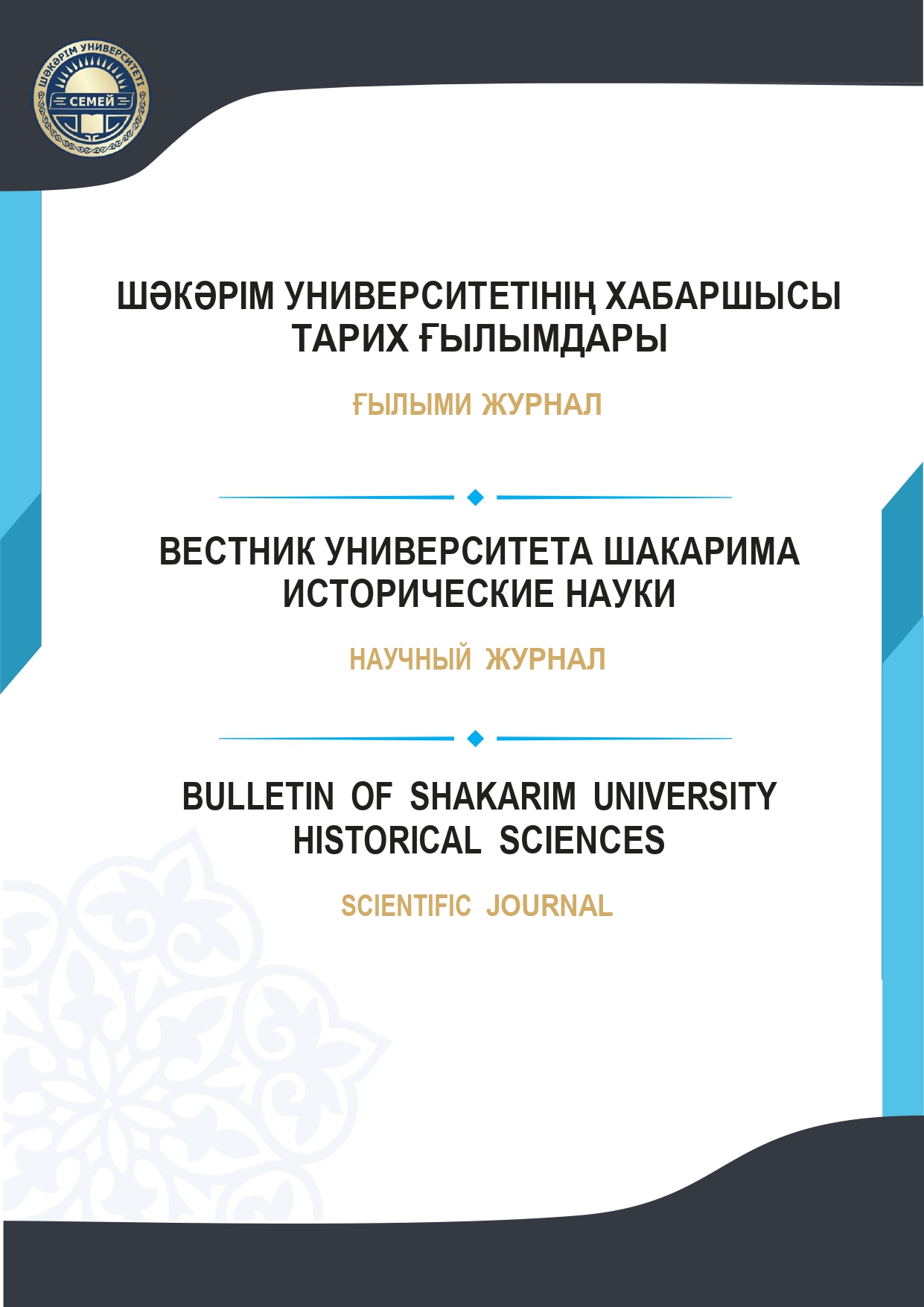Land reforms of the soviet period and the position of the Kazakh intelligentsia
Ключевые слова:
Soviet authorities, land reforms, collectivization, sedentarization, Kazakh intelligentsia, Alash figures, land issue, agrarian policy, famine, historical analysisАннотация
This article analyzes the essence of land reforms during the Soviet era and their impact on Kazakh society. The land policies implemented by Soviet authorities, particularly collectivization and forced sedentarization, brought fundamental changes to the traditional economic system of the Kazakh people. As a result, the nomadic and semi-nomadic population was forced to settle, leading to severe consequences such as economic crisis and famine. Additionally, the article examines the positions of Kazakh intellectuals regarding these reforms. Although the views of Alash figures and Soviet-era national intellectuals on land issues varied, their primary goal was to preserve the land, culture, and livelihood of the Kazakh people. Some cooperated with Soviet authorities and supported certain aspects of the reforms, while others opposed the injustices of land policies and criticized them. The article aims to assess the long-term consequences of Soviet agrarian policies and to historically evaluate the role and struggle of Kazakh intellectuals in this issue. The article also examines the contradictions and contentious issues of the national-territorial delimitation of the Soviet republics, which, in turn, was one of the factors influencing the ethnic and state unity of the Kazakh people.
Загрузки
Опубликован
Выпуск
Раздел
Лицензия
Copyright (c) 2025 Aisara A. Oralbekova (Автор)

Это произведение доступно по лицензии Creative Commons «Attribution-NonCommercial» («Атрибуция — Некоммерческое использование») 4.0 Всемирная.
Copyright presupposes the integrity and responsibility of each co-author who made a significant contribution to the writing of the article.
The author has the right to store his publications in an institutional or other repository of his choice, provided he provides the appropriate link to the journal’s website.





